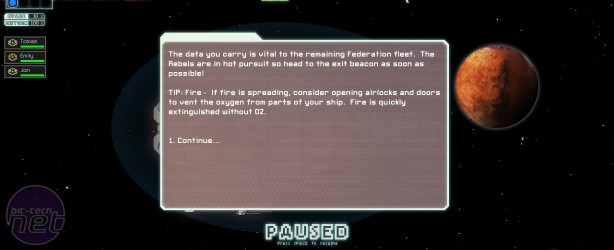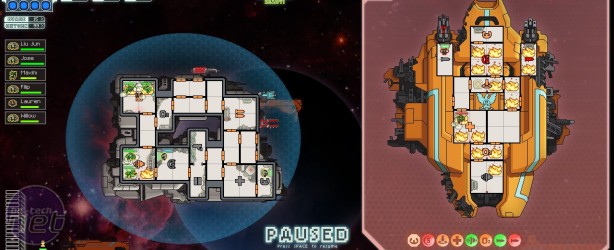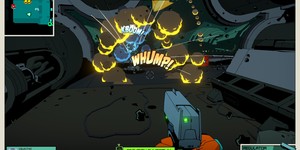
FTL Review
While FTL is undeniably successful in a functional sense (that is, the rules work and it plays nicely) where it really excels itself is in it's ability to weave stories out of the rules. There's remarkably little actual fiction within the game - crew members are just named icons without backstory, for example - but that doesn't matter because the game design is set up to compensate for that. There's enough room for you to steadily project your own ideas on to the game, but more importantly the rules act as means for creating all sorts of emotional response.It's tempting at this point to try and share some of the stories I've seen, but that'd be a bit self-defeating as FTL works best when you're exposed to these things naturally and first hand. Trying to express the sheer terror that comes from a rampaging fire or the desperate hope that you can reach the medbay in time isn't the function of a review like this.
Instead, just trust me. That stuff is there and if you're open to it then it's worth the price of entry alone.
That's not to say that FTL is without flaws, however. There's a smattering of tiny flaws which undermine some of what it's trying to achieve, such as the fact that there's only an Easy or Normal difficulty and not a Super-Nightmare variant for those who want to take this Rogue-like to its natural extreme.
In fact, I'd argue that FTL would most benefit from a customisable difficulty level - one where you can configure your starting state and the variables stacked against you individually. As it is, while you can choose to start with a selection of unlocked ships and layouts, there's no option to delve deeper than that. Likewise, there's no way you can keep more that one campaign on the go at once and there's no further or extended campaign options for those who'd want such a thing.
It's ultimately the absence of features such as this which are the main issues for FTL, as the core game is otherwise extremely polished and interesting to play. The fact that these additions seem so fundamental and rudimentary is really the only reason why we can't just overlook it. There's plenty of scope for FTL to take a cue from Space Alert and have multiple campaigns on offer, as each would only really require a new starmap to navigate and token aim to work towards.
That said, there is of course the obvious possibility that these features could appear in later DLC - which wouldn't be unreasonable considering the low price of the core game - so...
Regardless of such speculation though, the fact remains that FTL does what it sets out to very well indeed. It's small, lightweight, charming and the interplay between the rules is enough to create incredible tension, joy and relief. It could do with a reference manual of some sort and a few more customisation options, but these lacks don't significantly hold it back from being one of the best small strategy games this year.
Just play it already.

-
Overall90 / 100


MSI MPG Velox 100R Chassis Review
October 14 2021 | 15:04











Want to comment? Please log in.